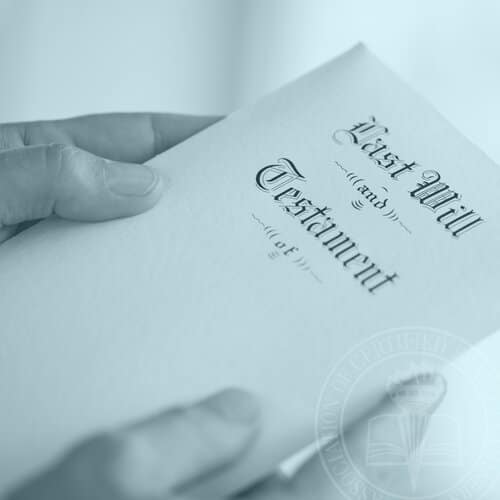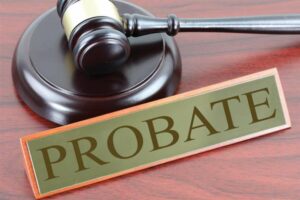Probate Fraud: Some Important Things to Note
If you are looking to invest as an expat or high-net-worth individual, which is what I specialize in, you can email me (advice@adamfayed.com) or use WhatsApp (+44-7393-450-837).
Table of Contents
Introduction
Death creates a perfect time to execute a crime, such as probate fraud. Tragically, it makes the bereaved unable to determine what to deal with first: the grief of losing a loved one or the devastating news that they have been tricked and now has also lost not only the love of their lives but also everything that were supposedly left under their care.
What even is probate and how does probate fraud happen?
The term “probate” refers to the legal procedure wherein a will’s authenticity and validity are established. The general administration of a decedent’s will or the estate of a decedent without a will are both included in the definition of probate. The executor designated in the will, or an administrator if there is no will, is chosen by the court to oversee the probate procedure after an asset owner passes away. To do this, the deceased’s assets must be gathered and used to settle any outstanding debts from their estate and to give the assets to beneficiaries.
We’ll examine a few types of probate fraud, explain what to watch out for, and provide some advice on how to deal with it.
Types of Probate Fraud Against Beneficiaries

Will Fraud
This occurs when a suspicious Will has been found, such as one that negates the deceased’s statements, is handwritten, or was drafted just before death; or when a Will is missing even though the deceased told family and friends that one had been made.
Although there may be a valid reason in either situation, these red flags may be hinting at potential fraud.
Below are some instances where fraud is committed during the preparation of a Will:
- giving a deceased person misleading information to induce them to make a Will or to modify it;
- applying improper influence over the deceased;
- forgery; or
- destroying or attempting to hide a valid Will.
Investigations can be conducted in cases when a dubious Will is produced to try to ascertain its authenticity. A copy of the Will file may be sought in cases where the will was created professionally.
Statements from the witnesses regarding their memories may be obtained if the Will was written by a person associated with the deceased. A court will consider “suspicious circumstances” if the person who prepared the Will stands either directly or indirectly o gain from it. It is also less probable that a Court will uphold such a Will if the circumstances are dubious.
Expert handwriting analysis can be performed when it is thought that the deceased’s signature on a Will is a fabrication.
If a Will cannot be located, it is assumed that it has been destroyed and is no longer enforceable. However, through the reconstruction process, it would be possible to get a grant and manage an estate based on a copy or unsigned version of the Will or even based on the testimony of witnesses who saw the signed Will.
The best measures to take to avoid Will fraud are those that are executed before death, such as:
- having a lawyer draft the Will on your behalf, and keeping a copy or the original; as well as
- indicating in writing to loved ones, friends, or other professionals that you have created a Will, where the original is being kept, and giving them a copy.
Following a death, you should promptly file a Caveat if you believe that a Will was fraudulently executed. If a grant has not already been made, a Caveat stops it from being issued while giving the parties involved time to seek legal counsel and do adequate probe.

Missing Funds and Fraudulent Claims
It is typical for worries to surface over the status of financial transactions with the deceased, which are usually related to:
- amounts paid out of the deceased’s money prior to their death; or
- assertions that the dead had debts that must be paid off with money from their estate.
A probe can be conducted to determine what funds were transferred, when they were transferred, and under what circumstances, if a beneficiary or personal representative suspects that money has been taken from the deceased before death.
While a person with sufficient mental capacity can make gifts right up until their passing, transfers made within this time frame can be contested. This can happen especially if the decedent was old or weak that the action has the effect of invalidating the Will, as well as if there is no proof that the transfers were meant as gifts.
A personal representative is only required to settle valid debts. Unfortunately, con artists posing as creditors, attorneys, or authorities are increasingly targeting personal representatives to influence them to resolve fraudulent estate claims.
Before settling any debt, personal representatives should be aware of probate fraud and exercise due diligence. It could be a good idea to hire a lawyer to help with the administration procedure and to evaluate and weigh major debts before making any payment. In some circumstances, seeking the court’s permission prior to payment is advised because if false claims are paid by personal representatives, they may be held liable to beneficiaries for any losses incurred.
Probate Fraud Personal Representatives Commit
Those in charge of gathering an estate’s assets and distributing them according to a Will or as per intestacy laws (the lack of a Will) have certain obligations that, when breached, can lead to their removal. They can also be accountable for losses suffered by the beneficiaries.
It would be fraud and a violation of duty if a personal representative fails to allocate an estate in line with a Will or the intestacy provisions, say, if they themselves wanted to benefit at the other beneficiaries’ expense.
The personal representative’s refusal to produce or share information concerning the estate is a typical indicator of probate fraud. Should this happen, beneficiaries can first secure a court order mandating the personal representative to disclose information about the estate’s assets and liabilities. The court order can be obtained by applying to the court or the probate registry.
By making sure that everything is recorded and documented correctly before death, as well as by urging beneficiaries and personal representatives to seek legal counsel when there are suspicions of probate fraud, the chances of such crimes can be minimized if not entirely avoided.
Pained by financial indecision? Want to invest with Adam?

Adam is an internationally recognised author on financial matters, with over 760.2 million answer views on Quora.com, a widely sold book on Amazon, and a contributor on Forbes.



